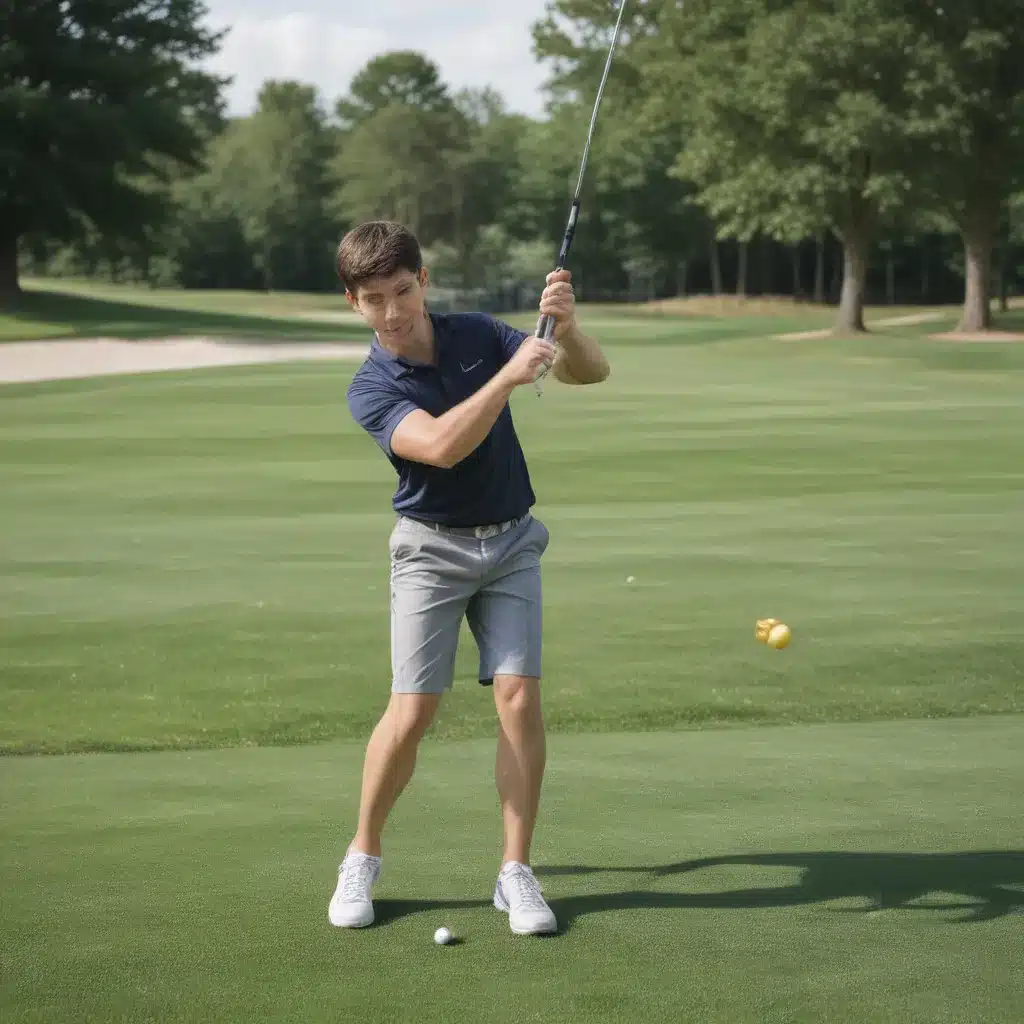The Allure of a Tour-Level Short Game
As I stroll around the immaculately manicured fairways of Eagle Ridge Golf Club, I can’t help but be mesmerized by the sight of the world’s best golfers effortlessly weaving their magic around the greens. Their ability to coax the ball into the cup from seemingly impossible distances and lie is truly breathtaking. It’s no wonder that developing a tour-level short game is the holy grail for so many amateur golfers like myself.
The allure of a short game that can rival the pros is undeniable. Imagine the satisfaction of sinking a delicate pitch shot from the fringe or holing out a slick, downhill putt to save par. These are the moments that can make or break a round, and being able to execute them with surgical precision is the ultimate golfing superpower.
But as anyone who has tried to master the short game can attest, it’s far easier said than done. The variables at play – from the ever-changing lies and conditions to the sheer precision required – can make it feel like an insurmountable challenge. Yet, the rewards of conquering this aspect of the game are immense, both in terms of lower scores and the pure satisfaction of executing these shots with world-class skill.
The Fundamentals of a Tour-Level Short Game
So, what does it take to develop a short game that can stand up to the rigors of tour-level competition? It all starts with a solid foundation of the fundamentals – the building blocks that underpin every successful short game.
Grip and Stance: The first step is to ensure that your grip and stance are optimized for short game shots. A neutral, “feel-based” grip that allows for maximum control and feel is essential, as is a balanced, athletic stance that provides a stable platform for your swing.
Swing Mechanics: From there, it’s all about honing your swing mechanics to achieve the precise, repeatable motion required for dialing in your distance control and trajectory. This means focusing on elements like club face alignment, swing path, and the use of your lower body to power the shot.
Club Selection: Of course, no discussion of the short game would be complete without addressing the importance of club selection. Choosing the right club for the shot at hand – whether it’s a delicate lob wedge or a trusty putter – is crucial for optimal distance and trajectory control.
Feel and Creativity: But the true hallmark of a tour-level short game goes beyond just the fundamentals. It’s the ability to combine that technical mastery with a deep feel for the shot and the creativity to adapt to any situation.
This is where the real magic happens, as the world’s best golfers seemingly defy the laws of physics, conjuring up shot after shot that leave the spectators in awe. It’s a blend of precise execution and artistic flair that separates the true short game virtuosos from the rest of the pack.
Mastering the Mental Game
Of course, developing a tour-level short game isn’t just about the physical skills – it’s also a battle of the mind. The mental game plays a crucial role in short game success, as the pressure and high-stakes nature of these shots can easily derail even the most technically sound player.
Confidence and Commitment: At the heart of it all is the need for unwavering confidence and a total commitment to the shot at hand. Doubt and indecision are the sworn enemies of the short game, and the ability to step up to the ball with a clear mind and a decisive swing is essential.
Visualization and Routine: Visualization is another powerful tool in the short game arsenal. Seeing the shot unfold in your mind’s eye, complete with the perfect trajectory and the ball finding the bottom of the cup, can help bring that vision to reality.
Coupling this visualization with a consistent pre-shot routine – a series of mental and physical cues that help you get into the right mindset – can further solidify your short game mastery.
Resilience and Acceptance: But perhaps the most important mental skill of all is the ability to bounce back from the inevitable misses and mistakes. The short game is a fickle beast, and learning to accept the occasional hiccup while remaining resilient and focused is key to sustaining success.
Deliberate Practice and Skill Development
Of course, developing a tour-level short game doesn’t happen overnight. It requires a relentless dedication to deliberate practice and a commitment to continual skill development.
Targeted Practice Sessions: This means structuring your practice time to focus on specific elements of the short game, whether it’s dialing in your distance control with a specific club or honing your ability to execute tricky greenside bunker shots.
Simulating Real-World Conditions: But it’s not enough to just hit shot after shot on the practice green. The true test comes when you’re faced with the uneven lies, changing wind conditions, and the pressure of a competitive round. Incorporating these real-world elements into your practice routine is essential for building the adaptability and resilience required to perform under fire.
Feedback and Refinement: And throughout this process, it’s crucial to seek out feedback and continually refine your technique. Whether it’s working with a coach, analyzing your swing on video, or simply paying close attention to the results of your practice, the key is to constantly be learning and improving.
Embracing the Journey
Ultimately, the journey of developing a tour-level short game is one filled with both challenges and immense rewards. It’s a pursuit that requires unwavering dedication, a commitment to the fundamentals, and a willingness to embrace the mental and creative aspects of the game.
But for those who are willing to put in the work, the payoff is truly remarkable. Imagine the thrill of sinking a long, winding putt to win a critical match, or the satisfaction of navigating a tricky greenside bunker shot to save par and keep your round on track.
These are the moments that make all the hours of practice and the occasional setbacks worthwhile. It’s a pursuit that challenges you to push the boundaries of your skills and to unlock new levels of artistry and precision on the golf course.
So, if you’re ready to embark on the quest for a tour-level short game, I encourage you to embrace the journey with open arms. It won’t be easy, but the rewards – both in terms of lower scores and the pure joy of executing these shots with world-class skill – will be more than worth it.
After all, isn’t that why we play this wonderful game in the first place? To constantly strive for excellence, to push the limits of our abilities, and to experience the thrill of mastering the most intricate and rewarding aspects of the sport?
So, let’s get to work, my fellow golfers. The path to a tour-level short game awaits, and I can’t wait to see where it takes us.


